Investigation and Classification
- Publication Date :
- Last updated:2025-04-29
- View count:2804
The investigation and classification system forms the foundation of prison operations. It ensures that new inmates are scientifically assessed and analyzed, and then assigned to appropriate levels of security management and treatment programs in alignment with the principles of individualized sentencing.
Moreover, modern prisons emphasize the functions of education and rehabilitation. Therefore, new inmates undergo thorough investigations—both direct and indirect—based on various factors such as age, temperament, education, vocational skills, health, religious beliefs, and criminal history. Psychological tests are also used to evaluate their individual differences and characteristics, helping to develop tailored treatment plans.
This process collects a broad range of data and establishes scientifically grounded, individualized case profiles, which facilitate more effective inmate treatment and management.
In addition, prior to reintegration into society, inmates are reviewed and assisted in applying for rehabilitative protection. Their families are notified in advance so they can prepare to receive them, and community organizations are coordinated to provide early reintegration counseling.
For elderly, seriously ill, or physically and mentally disabled inmates without family support, the prison refers them to social welfare organizations to address their post-release living needs. If necessary, the prison also invites community organizations to discuss reintegration and support services, in order to connect them with the social safety network, promote social adaptation, and prevent recidivism.
A brief overview of the investigation and classification system is provided below:
1.Orientation and Image Archiving for New Inmates
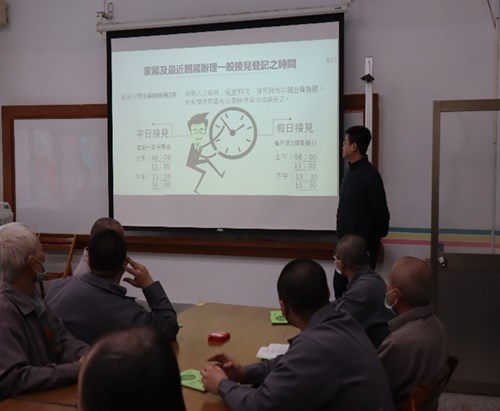
【Orientation for New Inmates】

【Image Archiving】
2.Information Form Completion and Psychological Testing
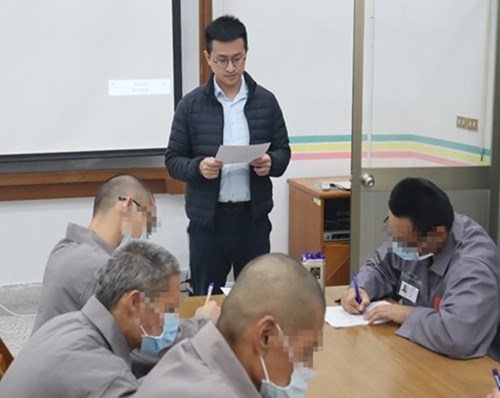
【Psychological Tests】
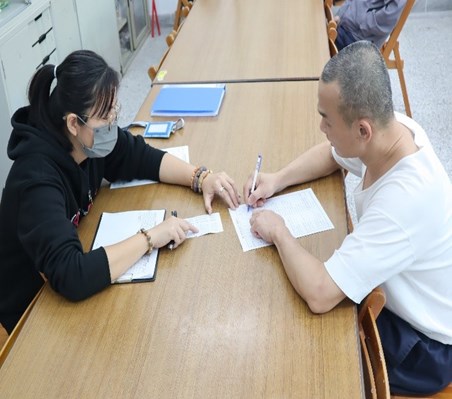
【Survey on the Care of Minor Children】
3.Direct, Indirect and Released Investigations
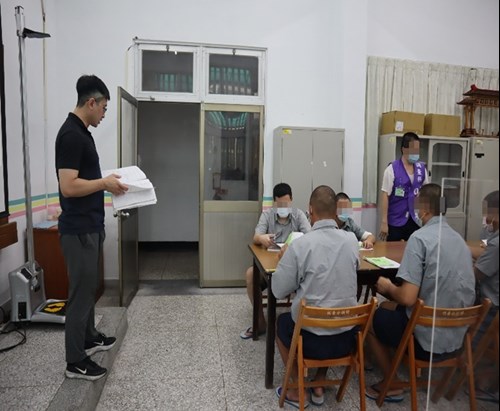
【Direct Investigation】
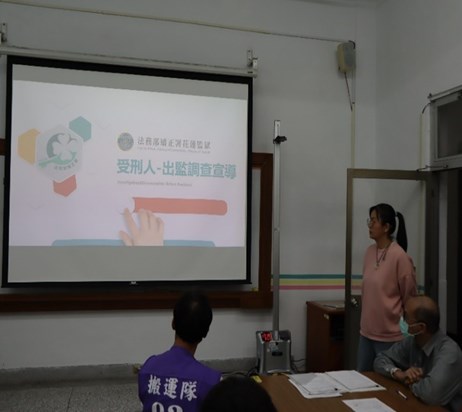
【Released Investigation】
4. Development, Review, and Recommendations of Treatment
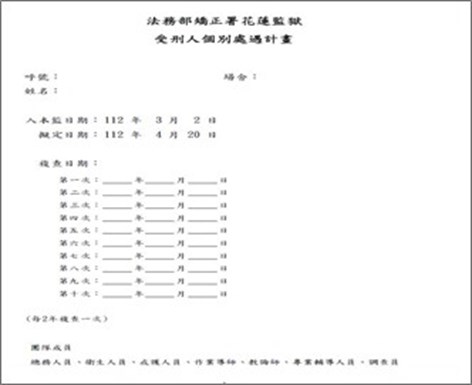
【Individualized Treatment Program】
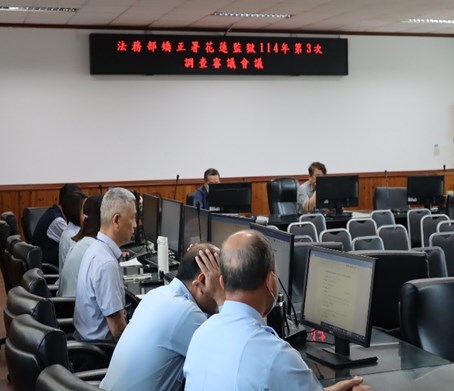
【Investigation and Deliberation Meeting】
5. Social Resource Evaluation and Referral
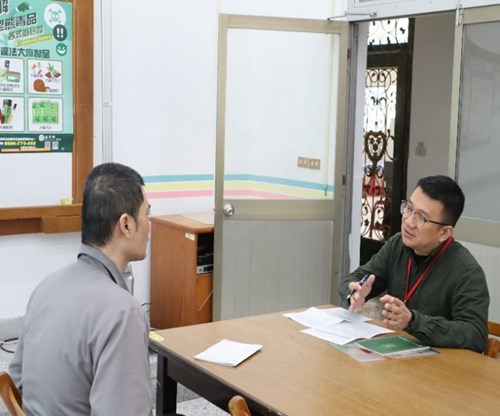
【Resettlement Assessment】
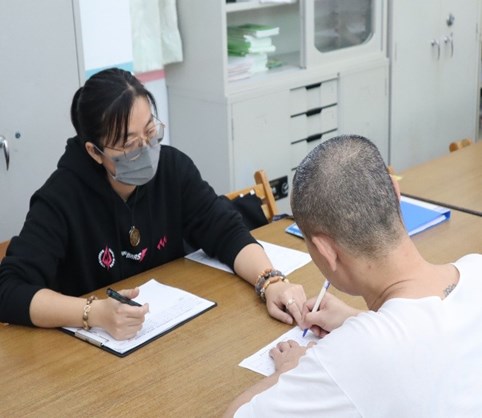
【Workforce Reintegration Referral】
6. Rehabilitation and Protection Measures
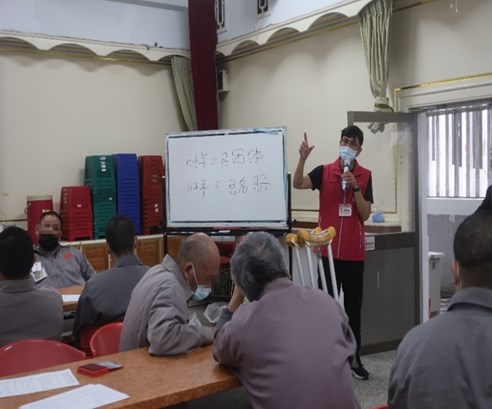
【Rehabilitation Counseling】
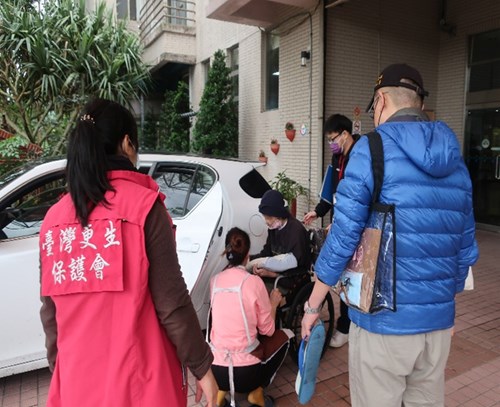
【Protective Escort and Placement Arrangement】
7. Others
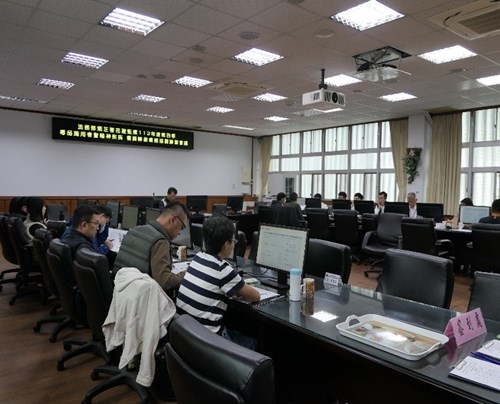
【Reintegration Transition Conference】
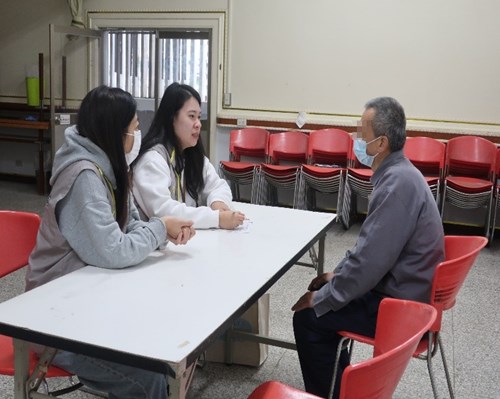
【Community-Based Linkage Counseling】

